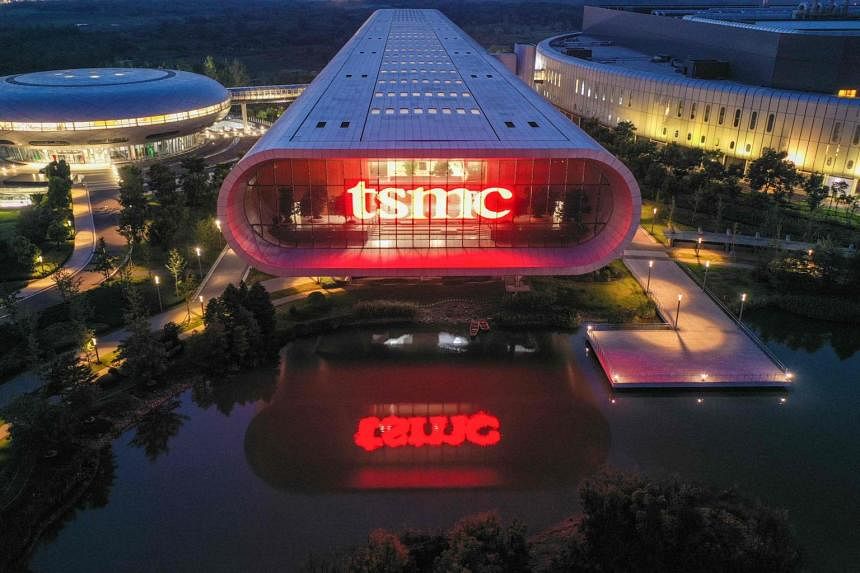TAIPEI - Taiwan's flagship semiconductor industry will not need to be destroyed in a Chinese invasion, the island's security chief said, amid growing US concerns that Beijing could move to forcibly acquire the crucial Taiwanese chip technology.
Mr Chen Ming-tong, director-general of Taiwan's National Security Bureau, told lawmakers on Wednesday that it would be useless to take over facilities from Taiwan Semiconductor Manufacturing Co. if Beijing took control of the island.
TSMC is highly integrated with the global supply chain, including suppliers such as ASML Holding NV of the Netherlands, so the US and other countries would be able to choke off its production without getting rid of its plants, he said.
"If you understand the ecosystem of TSMC, the comments out there are unrealistic," Mr Chen said.
"TSMC needs to integrate global elements before producing high-end chips. Without components or equipment like ASML's lithography equipment, without any key components, there is no way TSMC can continue its production."
"Even if China got a hold of the golden hen, it won't be able to lay golden eggs," he added.
Mr Chen's remarks came in response to lawmakers who asked about a Bloomberg report that said President Joe Biden's administration has stepped up contingency planning for a potential assault on Taiwan after Russia's invasion of Ukraine.
The war-gaming remains purely hypothetical, but has included considerations to evacuate TSMC's chip engineers in the event of a Chinese invasion, according to people familiar with the administration's deliberations.
Some former US officials have even advocated that the US take the extreme option of making clear to China that it would destroy TSMC facilities if the island was occupied, although there are no current plans to consider this. Such a tactic would serve both as deterrence and to avoid Taiwan's critical chip production plants from falling in Beijing's hands.
Mr Chen on Wednesday dismissed concerns from local legislators that the US may try to take over TSMC or attract its semiconductor engineers abroad, noting the Taiwanese semiconductor giant had built a critical ecosystem that helped it stay ahead of rivals including Intel Corp. and Samsung Electronics Co.
"Those war-gaming plans are just scenarios," he said. "If they understood TSMC's ecosystem better, they would realise that it's not as simple as they think. That's why Intel can't catch up with TSMC."
Tensions in the Taiwan Strait in recent months have renewed fears of a Chinese takeover of the island, particularly after Beijing launched unprecedented military exercises around Taiwan in response to House Speaker Nancy Pelosi's August trip to Taipei.
Beijing has vowed to bring democratic Taiwan under its rule, resorting to the use of force if necessary.
Taiwan, for its part, has sought to address American concerns by pledging to work with the US and its allies to prevent China's military from acquiring its advanced chip technologies. Various governments have wooed TSMC to expand its presence into their countries, and TSMC has agreed to set up a US$12 billion chip fabrication plant, or fab, in Arizona.
The US National Security Council has estimated that the loss of TSMC in a Chinese invasion of Taiwan could cost the world economy more than US$1 trillion.
On Tuesday, TSMC shares fell by the most in 28 years after the US imposed tighter controls over chip exports to China. The new restrictions expanded curbs on the export of some advanced chips used for artificial intelligence and supercomputing and also tightened rules on the sale of semiconductor equipment to any Chinese company. BLOOMBERG

